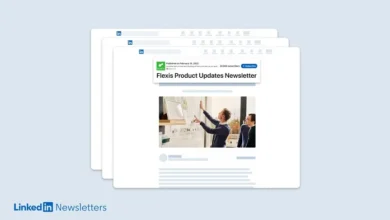X Could Prove to Be Worth More Than $44B to Musk and His Companies

Much has been made of Elon Musk “throwing away” $44 billion on Twitter, as the company’s revenue and usage has continued its steady decline. But that may miss a critical element of Musk‘s thinking, and the value that the platform actually provides for himself, and his companies.
Because while Musk would, of course, love to believe that he’s the best business operator in the world, and that he can make a viable business out of anything, his logic behind buying the platform is actually more seeded in political influence, as opposed to running X itself. And that could still prove to be worth far more to him than the $44 billion price tag.
The seeds for Musk’s eventual purchase of Twitter can actually be traced back to this exchange in 2020:

Optional Caption
Musk has since deleted the tweet, but this post, published two years before Elon started buying up Twitter stock, which eventually led to his purchase of the app, points to the logic in why he sees such value in the company.
The tweet above is in reference to a political coup in Bolivia, which led to the ousting of then Bolivian President Evo Morales. Rumors have long suggested that the U.S. was involved in the coup, with American authorities reportedly seeking to gain control over the nation’s lithium resources, and keep it out of the hands of Russia and China.
Bolivia has the largest lithium reserves in the world, and in recent years, demand for lithium has skyrocketed following the growth in electric vehicle production. Which, of course, directly links to Tesla, and Musk’s statement essentially points to the fact that the Bolivian coup resulted in more favorable lithium access for his companies.
And how was the Bolivian coup organized and amplified?
According to The Morning Star:
“Tens of thousands of fake Twitter accounts were created to support the military coup against Bolivia’s elected president Evo Morales, a new study suggests. Over 68,000 false accounts were set up to try to legitimize the army’s overthrow of Mr Morales following his re-election last month and to justify the massacres of protesters against the coup that have followed.”
The suggestion is that U.S. operatives essentially weaponized Twitter to fuel dissent, and drive the overthrow of the nation’s elected leader.
And given his vested interest, Elon had a front row seat.
It’s this power that awakened Musk to the potential of Twitter to sway voters, and wield enormous political influence. That’s the motivator that led to Musk buying the platform, and re-aligning its moderation guidelines around “free speech”, because Musk saw an opportunity to shift political sentiment in relation to his interests, and ultimately win for his projects.
It’s not about protecting humanity or freedom of speech or any of the other philosophical virtues that Musk has suggested in his various comments about the app. Musk sees Twitter, now X, as a means to pressure governments to give his companies more favorable treatment. And that’s becoming more evident in his various dealings.
For example, Elon recently opposed a Brazilian court order to suspend the profiles of users who’ve continued to perpetuate the lie that the 2022 Brazilian election was “stolen,” which led to the ouster of former President Jair Bolsonaro.
Bolsonaro was a Musk ally, and was keen to organize favorable lithium deals for Tesla, and his election loss meant that Musk lost that opportunity. So Musk is opposed to the current Brazilian government, who are less inclined to agree to the same deals and conditions.
So in the spirit of replacing whoever doesn’t go along with his plans, Musk has made a show of demonstrating how corrupt Brazil’s leadership is, as part of a play to swell dissent, and ideally get them voted out at the next election.
Again, it’s the exact same playbook Musk saw play out in Bolivia, but he’s now trying to lead it himself, in order to derive optimal benefit for his interests.
But Elon said that his opposition to the Brazilian order was about upholding the law, and protecting free speech, right?
Well interestingly, he wasn’t as keen to make a stand against similar requests from authorities in Turkey, India or Germany, which each has its own role to play in Musk’s expanded business empire.
Tesla’s currently working towards the establishment of new distribution agreements in India, which would make it a valuable new market for the company, Musk has a relationship with Turkish Prime Minister Erdogan, and has discussed opportunities for both Tesla and Starlink in the region, while Tesla’s key European factory is in Berlin.
Coincidentally, Musk hasn’t opposed any removal orders from these nations that have been put to X, despite them being pretty much the same as those filed by Brazilian officials.
Musk has, however, criticized Australian authorities. Tesla has repeatedly pointed to Australian Government red tape as a key impediment to its development in the nation.
Musk has also criticized the U.K. Government. Tesla’s been lobbying for the U.K. government to raise taxes on petrol and diesel cars, in order to fuel bigger subsidies for electric vehicles.
The trend here is fairly clear, Musk is looking to use his presence on X, and his broader influence over the platform’s algorithms, to stir dissent against governments that he feels are in his way.
Which, of course, also extends to U.S. politics.
Honestly, I don’t think that Elon Musk believes even half of the things that he posts about U.S. political issues, or feels passionately about them one way or another. But if Trump’s re-elected in November, it’s guaranteed that Musk will get a direct line to the White House. That’ll enable him to shake off regulatory restrictions, secure government subsidies, sway favorable policies and more.
A Trump victory would effectively enshrine Musk’s political influence, and you can bet that he’d then be pitching that same support to every opposition party in every region where he feels like he can gain an advantage through similar input.
You want to win at the polls, you agree to easing restrictions on Musk’s projects, and he’ll give you the full power of his influence on X.
Musk controls all the algorithms, all the systems, he can amplify and supress whatever he likes. And that is powerful, even if X does now have fewer users.
So while Elon is seemingly losing money on X, and could appear to be “setting fire” to that initial $44 billion investment, it could actually be worth significantly more to Musk, and his companies, if he does wield the level of influence that he thinks.
The benefits that Tesla, SpaceX, and his other projects could glean from changes in government policies could well exceed that initial outlay, so while it may seem like Musk is running X into the ground, the ends may ultimately justify the means.





